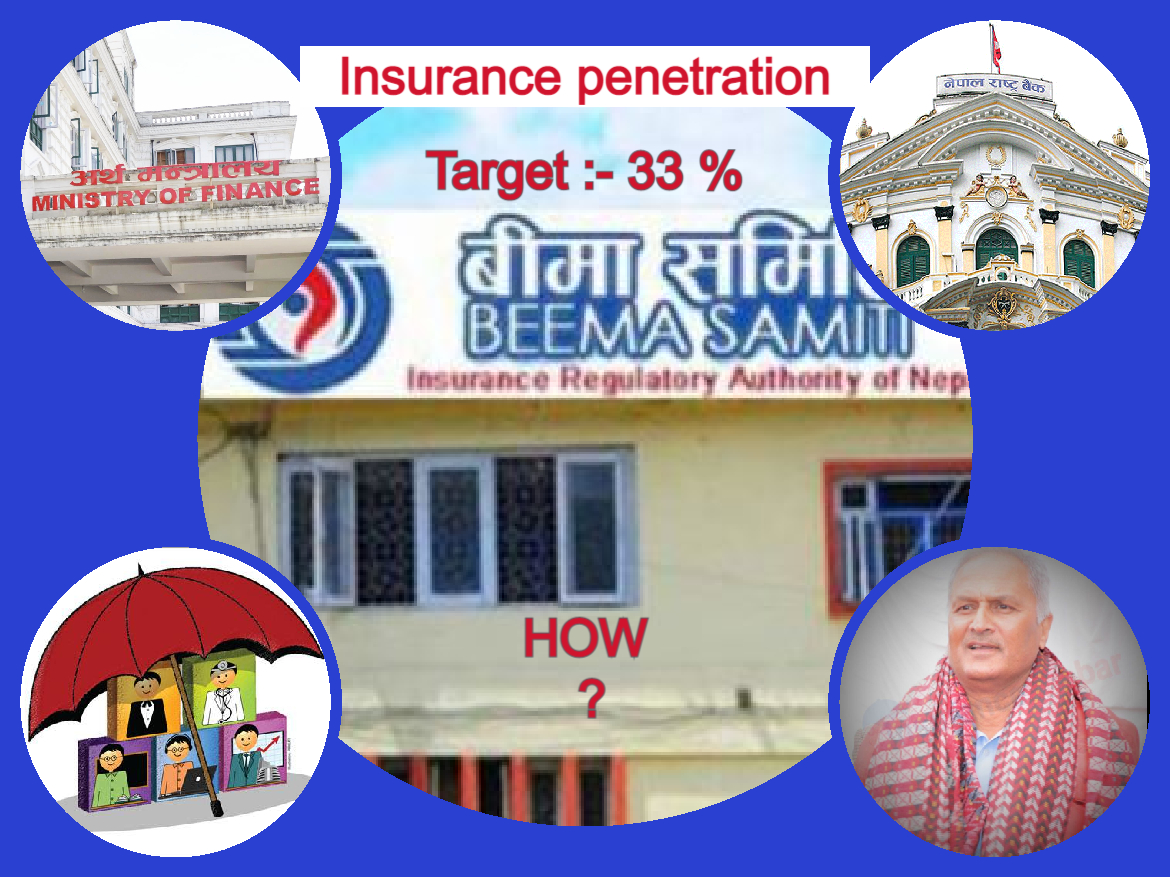Kathmandu: The budget for the coming Fiscal Year 2078/79 has set a target to increase the insurance penetration to 33 percent. The current average penetration is 24 percent. But the regulatory authority, Beema Samiti has not made public any action plan to meet the central government’s target. Though Samiti has prepared guidelines for issuing agent’s license to the digital payment service provider(PSP).Samiti has taken this step to to the view to involve PSP in insurance agency business. But ar per prevailing guidelines of the regulator of PSP, Nepal Rastra Bank, PSPs are not allowed to get involved in any business other than digital payment service.
Beema Samiti has been saying that it has opened a new platform to sell insurance policies. However, voices are being raised against the areas that Samiti has tried to bring into the system. Similarly, some time ago, Samiti had brought a guideline on bancassurance. But after banks and financial institutions started forcing their customers to buy policies, Nepal Rastra Bank put restriction on BFAs to continue insurance agency service.
Bancassurance is not a bad practice in itself. But had some shortcomings. However, the policy of the Samiti failed as it could not coordinate with the Nepal Rastra Bank to address the shortcomings. It is clear that there is a lack of initiative of Samiti even though it is still in a position to work by ending the distortions seen in it.
Beema Samiti to pave the way for the agent to sell the policy to other channels as well. Experts are of the opinion that the policy should be arranged so that the insured can buy the policy directly without the involvement of an agent. It seems that the Samit should also bring the policy of the institutional agent. Just like trying to make the payment provider an agent. The concept of institutional agent is also needed. It is best to sell after counselling through agent or employee of some institutional agent.
Insurance companies are still concentrated in the urban market area. Experts suggest that they should be encouraged and in some extend forced to reach to the villages. Another thing is that insurance companies are only focused on large-sum policies with large premium. They have not shown much interest in micro policy which has very low premium. While large section of Nepali society is not in a position to buy policies with high premium. For this, companies have to bring policies targeting low-income citizen.
If Samiti, in coordination with the Government of Nepal, formulates a policy to provide life insurance to people with a fixed income, the number of civil servants in Nepal is 80/85 thousand, the army and police are around 100 thousand. Similarly, employee in other sectors can also be brought under the coverage of insurance.
The government can bring various subsidy schemes to bring farmers and citizens living below the poverty line. For this too, Beema Samiti has to take initiation to provide suggestions to the government.
Though Beema Samiti has mentioned that insurance awareness is one of it’s priorities. But not much has been done by the regulator itself. The royalty collected by Samiti from Insurance Companies against their premium earning is piled up. But it’s unutilized. The central government is eying such funds to meet it’s short supply of fund.
Beema Samiti must focus and make investment in social awareness to expand insurance penetration. Still large section of the population is completely unaware of the benefits and importance of insurance.
A variety of audio and video content can be prepared for this. Motivational materials can be prepared with the involvement of the beneficiaries or the insured.










